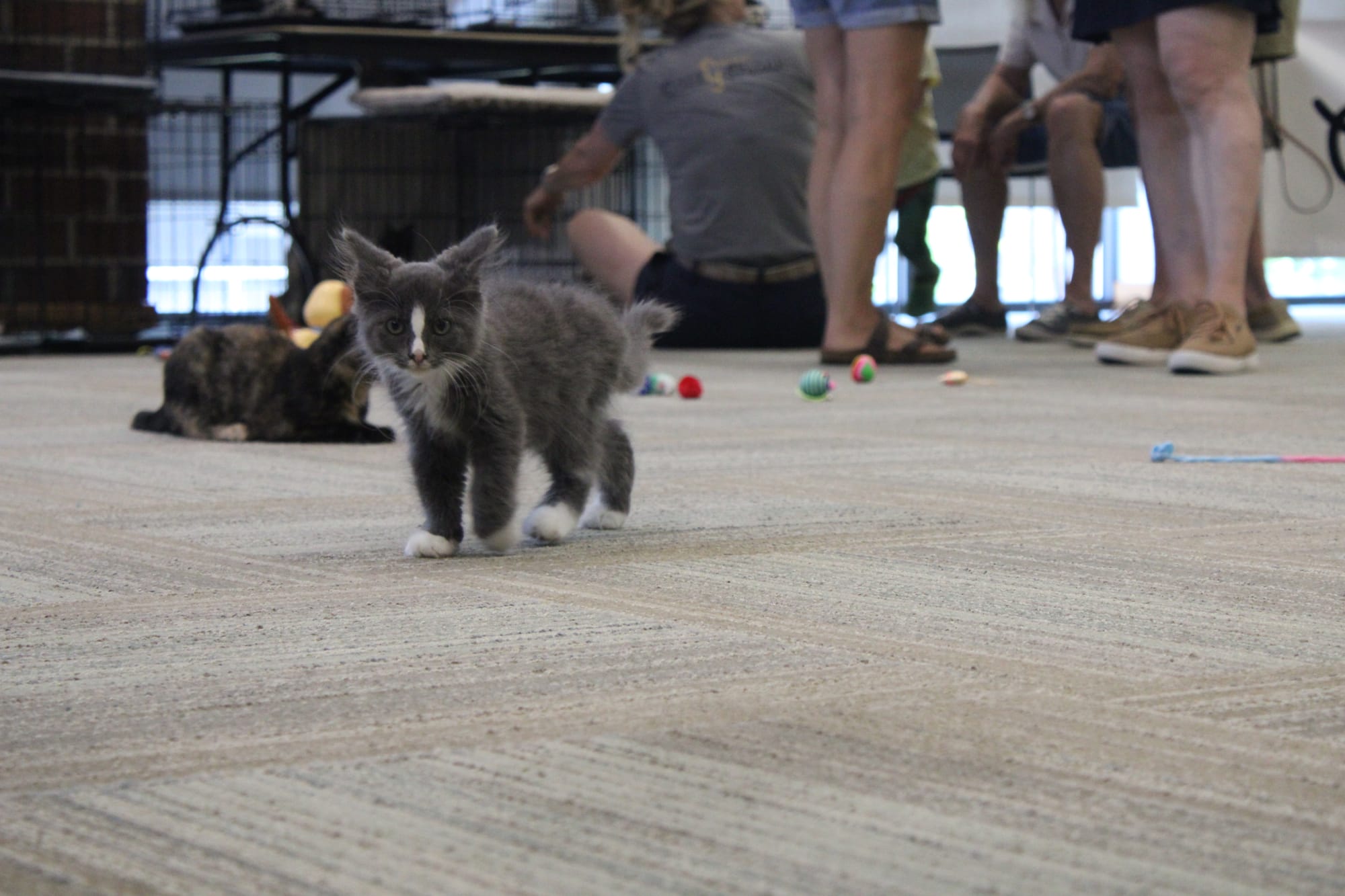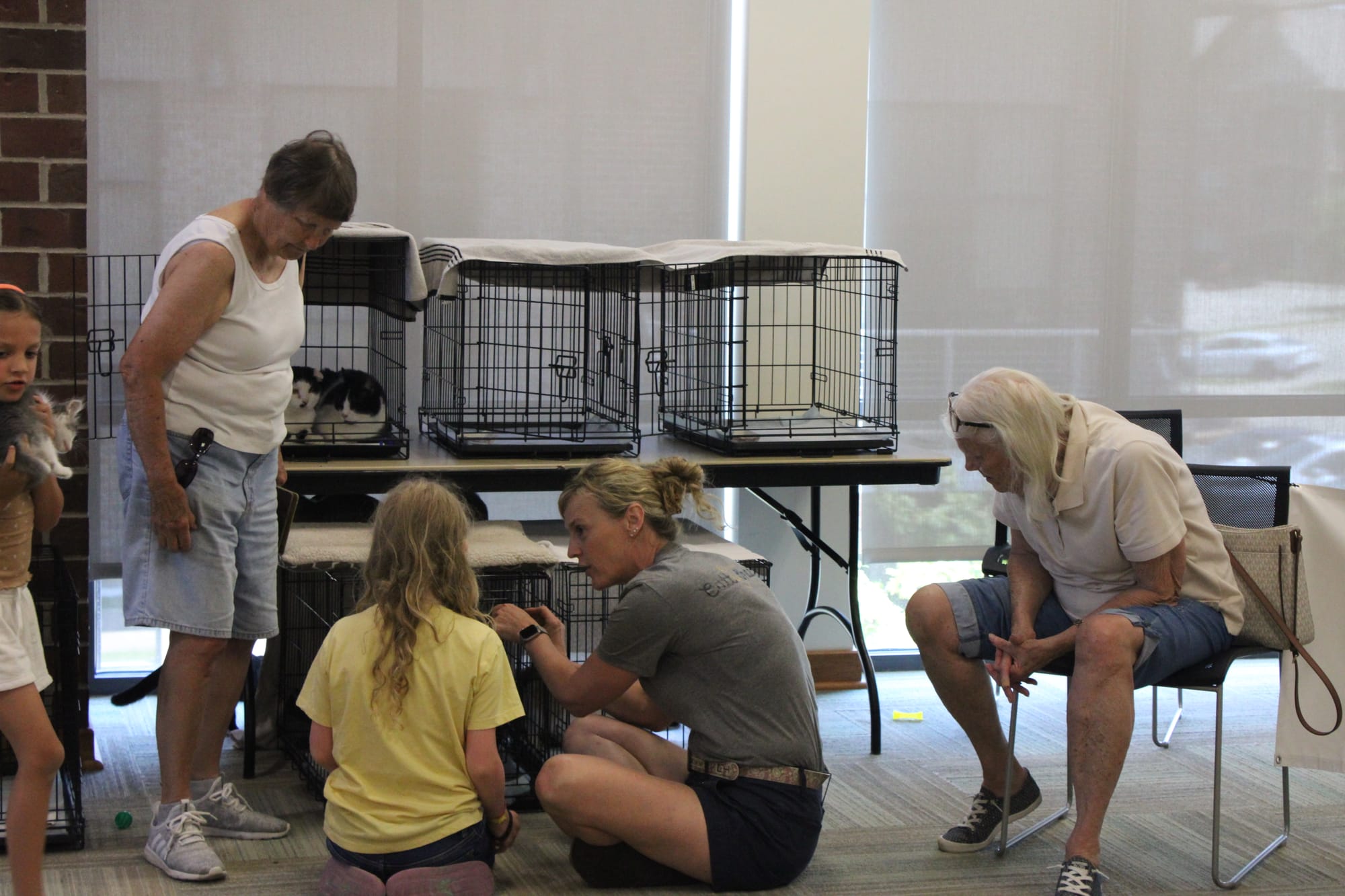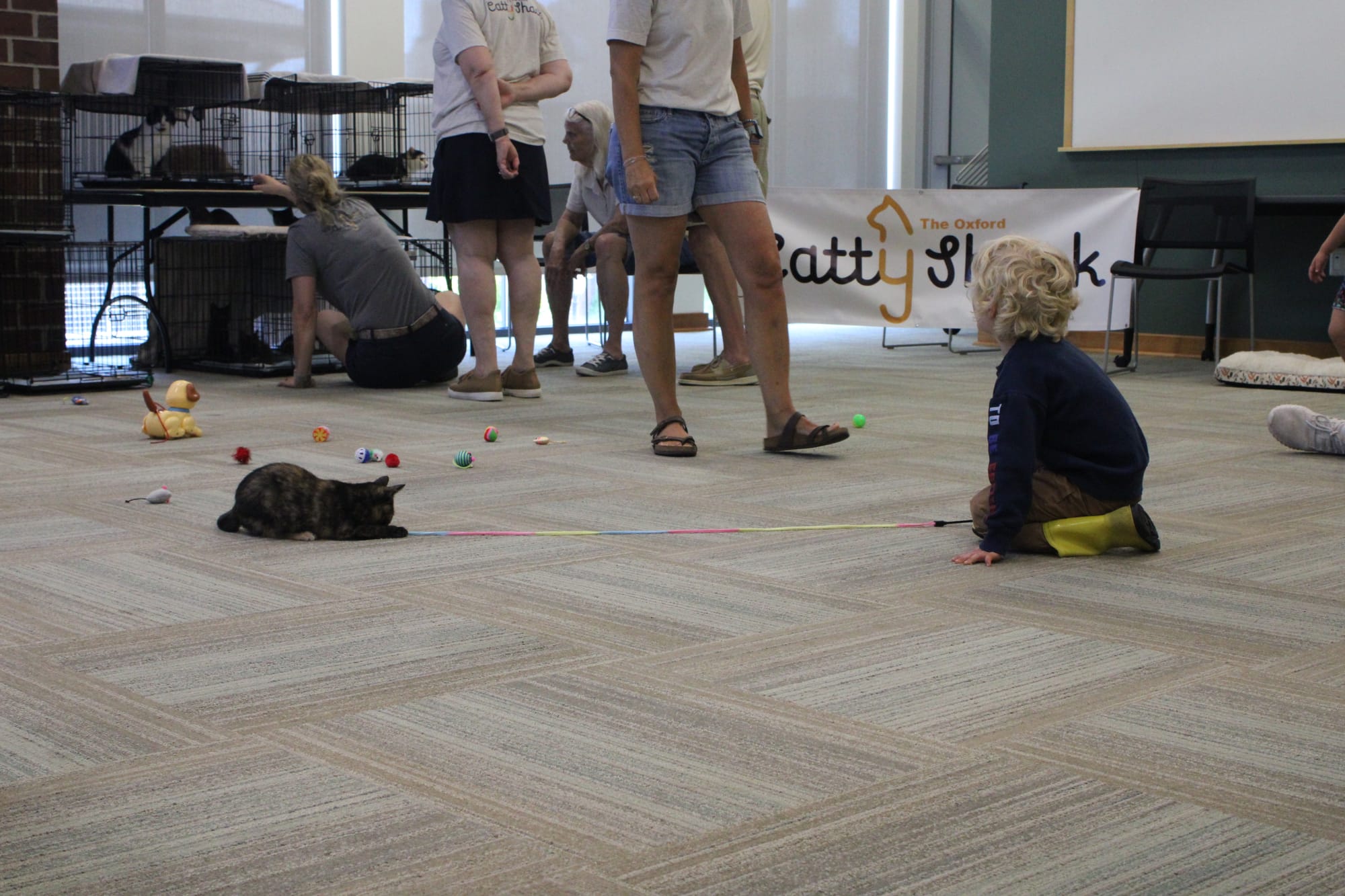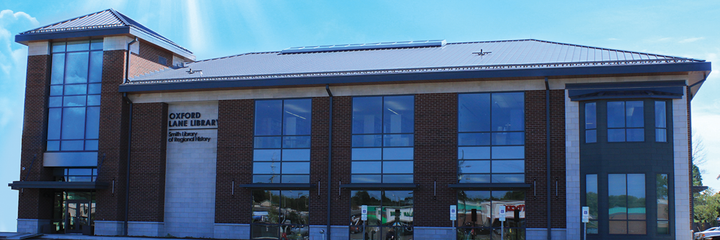Oxford Catty Shack adoption drive helps cats find homes
The Oxford Catty Shack brought 17 cats for adoption to the Oxford Lane Library on June 21.

The meeting room in Oxford Lane Library is filled with kittens and kids alike.
Half a dozen open kennels line one wall, with more cat carriers on another. One kitten starts to play with a string toy a boy is waving around, and he gleefully shouts to his parents to watch. Other cats are a bit less sure about the situation, finding their own quiet corners to hide in.
The Oxford Catty Shack, a nonprofit cat rescue based in town, brought 17 cats to their adoption drive at the library on June 21. Dozens more are still in the organization’s care, too young or too timid for the event which attracted more than 100 people.

In total, seven cats were adopted during the event, including two kittens by Bob and Kathy Carmean. Bob Carmean said the kittens, who they’ve renamed Linus and Lucy, are playful, though Lucy especially likes to hide right now.
The Carmeans had cats for 40 years, but the house was empty of pets following their last cat’s death this January. The death hit Kathy hard, Carmean said, and she initially didn’t want to talk about adopting new ones. By the time they heard about the adoption event, though, they were ready to welcome a pair of new pets into their home.
“It’s taken [Kathy] a while to even consider revisiting having kittens in the house,” Carmean said. “But once we got [to the adoption drive], it was a no-brainer. She was attached and wouldn’t leave without two new buddies.”
The Catty Shack has operated in Oxford for almost two years. In that time, the founding volunteers — Cindi Byrge, Angela DelVecchio and Jessica Hallberg — have helped more than 800 cats. That includes both taking in cats for adoption and trapping, neutering and releasing (TNR) adult cats back into their colonies. The TNR strategy aims to control stray cat populations without relying solely on adoption by making sure cat colonies can’t keep reproducing.

For DelVecchio, the past two years have been a constant stream of cats on and off her property. The shack itself is a large shed outside DelVecchio’s house filled with cats, litter boxes, toys and medicine. She and the other volunteers meet people there for adoptions, but the organization doesn’t have an open shelter for people to visit.
“We try to keep it to people who are really serious about adopting, but a lot of times people maybe would come to just hang out and then decide that they wanted to adopt,” DelVecchio said. “But because it’s mostly at my house and then a couple of other foster people’s houses, we don’t feel comfortable doing that.”
Holding events like the June 21 adoption drive are good for exposure, DelVecchio said. The Catty Shack operates exclusively within the Talawanda School District, and DelVecchio sometimes feels like they’ve exhausted their network of potential adopters. Right now, they’re at capacity.
Helping more than 800 cats in less than two years is a monumental task. Hallberg and DelVecchio say they often put in more than 40 hours a week without pay while balancing their jobs. Byrge, a retiree, puts in a similar amount of time.
Since starting the Catty Shack, Byrge herself has adopted three new cats, all with disabilities. Finding homes for healthy kittens is easier than for older cats or pets with additional medical needs.
“We have to figure out what we can do to promote [older cats] a little more … that’s the only thing that bothered all of us [at the adoption drive],” Byrge said. “It was an amazing success otherwise — a lot of exposure, a lot of donations, a lot of kindness, a lot of love — and that’s what it takes for our type of organization to be successful.”
The Catty Shack has helped nearly 1,000 cats so far, but the stray cat population persists. Even if they spent 24 hours a day trapping cats, Byrge said, the Catty Shack couldn’t get them all. Just this month, DelVecchio said they finished spaying and neutering a colony of 50 cats, each of which they named after a U.S. state to help keep track.
The operation has improved with experience, Hallberg said. She, DelVecchio and Byrge still spend hours every day catching and taking care of cats, but now they have other volunteers to help, too. They’ve also gotten better at where to use their time.
“We’ve learned how to be more efficient with our trapping, but that means we just trap more, we don’t spend less time,” Hallberg said. “We still spend a lot of hours. I can’t even fully estimate.”
Community support has also come in the form of supplies and monetary donations. Every dollar raised goes directly to supporting the cats, Hallberg said. When they have cats that need complex medical care, the Catty Shack runs individual fundraisers so they don’t take money away from saving others.
Still, the time commitment is daunting.
“No one would ever do what we’re doing,” Hallberg said. “No one’s going to come begging to take over this project … I think we all know vaguely that we’re probably going to just have to exist forever.”
DelVecchio said they’ve talked about ways to scale up the operation, like by creating a new physical location for adoptions. That requires a staff they don’t have, though, and she said she can’t justify leaving her own job without getting paid for her work with the Catty Shack.
One future plan is definite, though. DelVecchio said they hope to celebrate when the organization helps its thousandth cat later this year.
“Sometimes we get wrapped up in, ‘Is this really making a difference?’ If we quit now, in two or three years it’d be right back where it was,” DelVecchio said. “Those are the times I have to just be like, we’re probably not going to solve this problem, but we are making it better, at least for now, and that counts for something. We’re certainly helping the cats we’re helping.”





